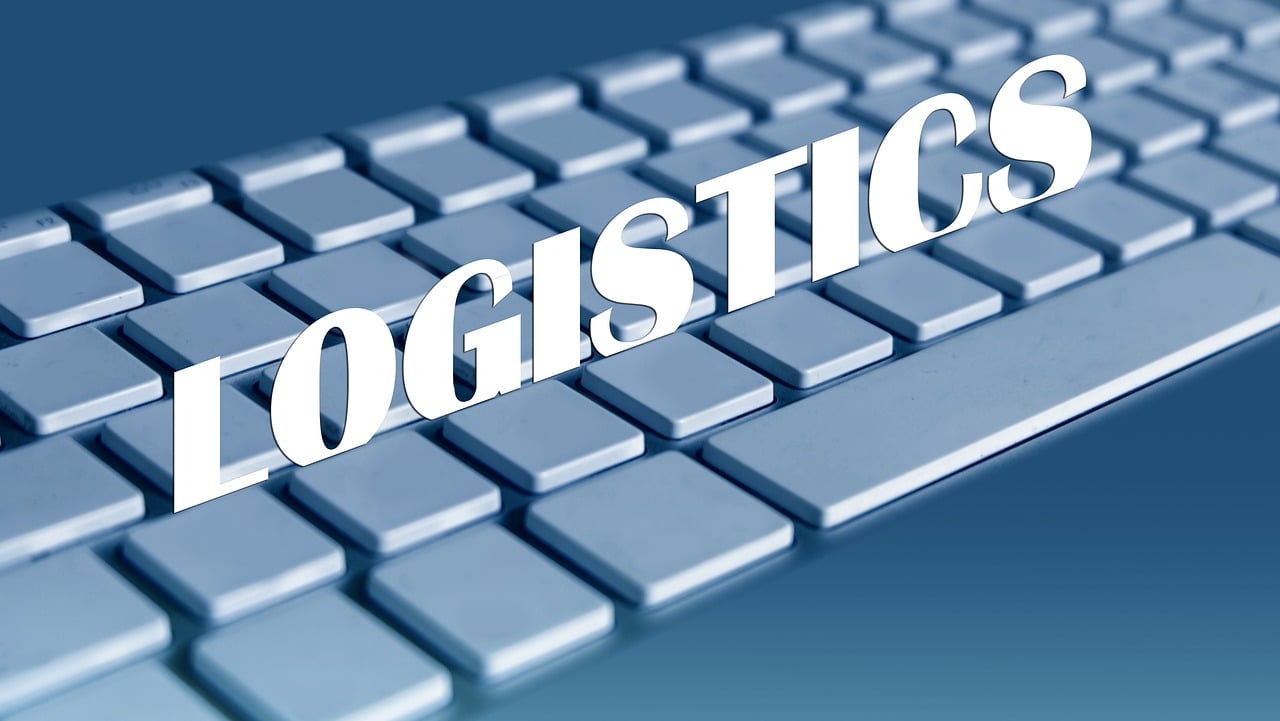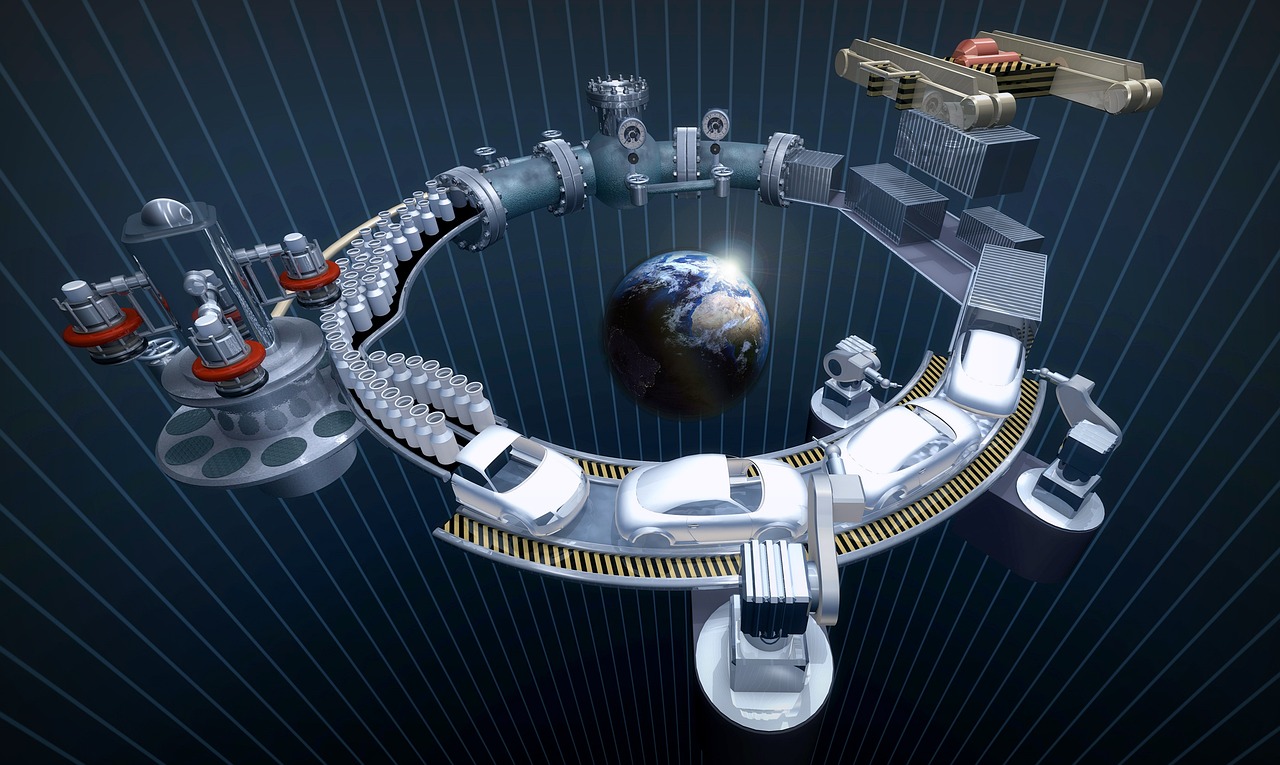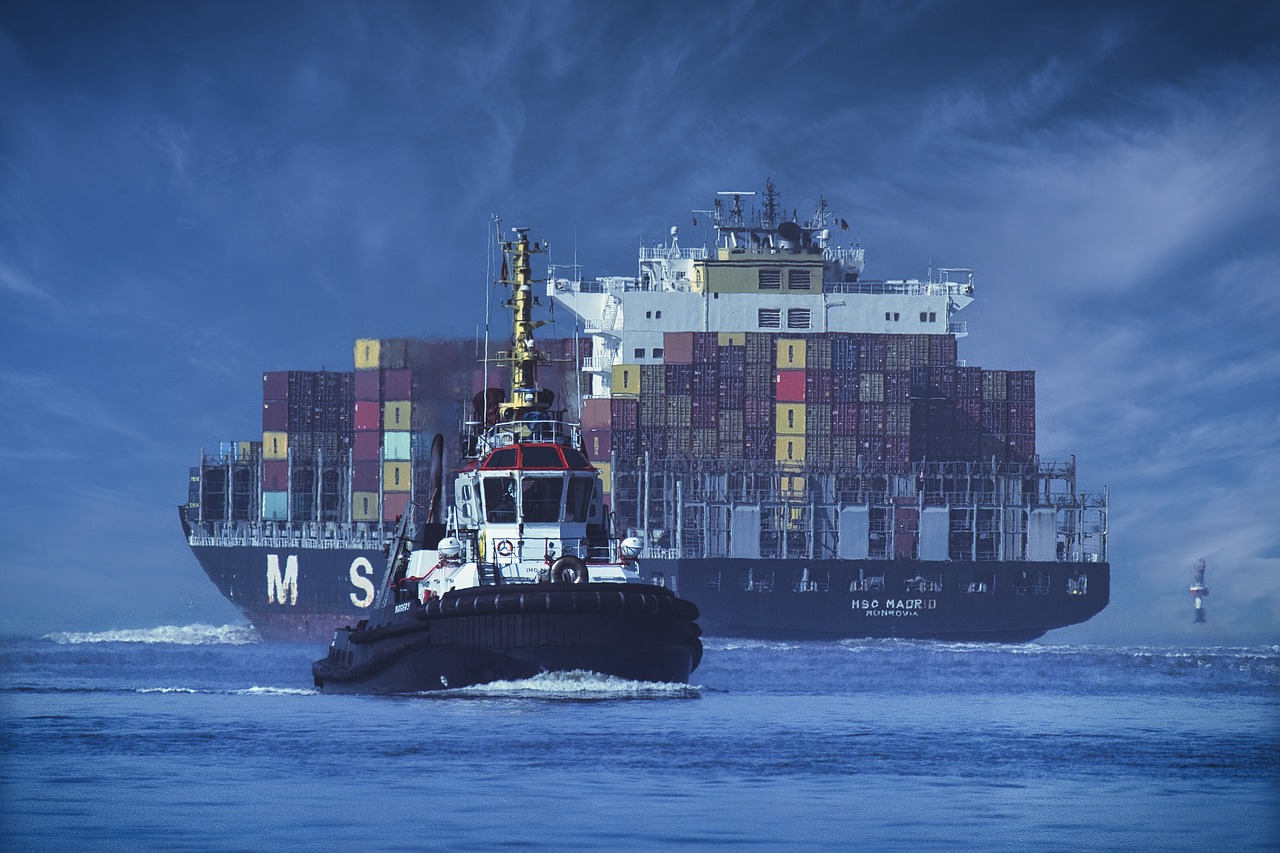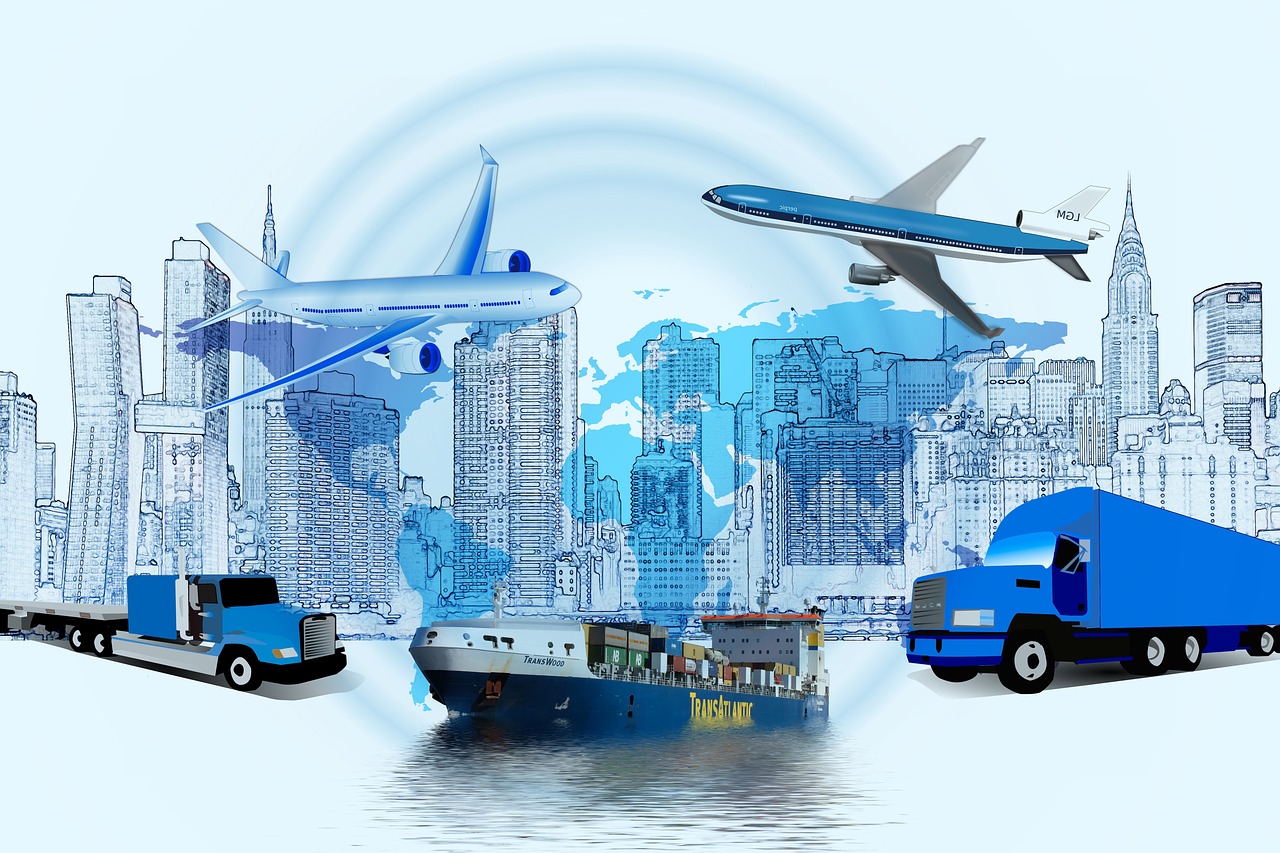
In the vast continent of Africa, where infrastructure challenges have long impeded economic growth, a groundbreaking revolution is taking place.
Artificial Intelligence (AI) is paving the way for a new era of logistics, bridging the gap between limited resources and growing demands.
By harnessing the power of AI, companies operating in Africa can optimize their supply chains, streamline operations, and overcome the barriers that have hindered progress for decades. The integration of AI technology into Africa's logistics sector is not only improving efficiency but also enhancing transparency and reducing costs. With AI-powered systems for forecasting, route optimization, and demand planning, companies can anticipate and respond to changes in real-time, ensuring products reach their destinations faster and more efficiently. This transformative technology is reshaping the logistics landscape in Africa, enabling businesses to meet the needs of a rapidly expanding market. As infrastructure continues to develop and new technology becomes more accessible, the potential for AI to revolutionize African logistics is immense.

With each advancement, companies are gaining a competitive edge and driving economic growth across the continent. The future of logistics in Africa is being shaped by AI, creating a more connected and prosperous future for the entire region.
Revolutionizing African Logistics: How AI is Bridging the Gap in Infrastructure Challenges
AI-powered solutions for infrastructure challenges
In the rapidly evolving world of logistics, Africa has long faced a unique set of challenges. The continent's vast geography, limited infrastructure, and uneven development have posed significant obstacles for businesses looking to efficiently move goods and services. However, a transformative solution has emerged that is poised to revolutionize the industry: Artificial Intelligence (AI).
AI-powered systems are proving to be a game-changer in addressing the infrastructure challenges that have hindered progress in African logistics. By leveraging advanced algorithms and data analysis, these innovative technologies are enabling companies to optimize their supply chains, streamline operations, and overcome the barriers that have historically impeded growth.

From predictive analytics for demand forecasting to intelligent route planning and real-time tracking, AI is providing African logistics companies with the tools they need to thrive in an increasingly competitive landscape. By integrating these AI-powered solutions, businesses can enhance their agility, responsiveness, and overall efficiency, ultimately delivering better services to their customers and driving economic development across the continent.
Case studies of successful AI implementation in African logistics
One shining example of AI's impact on African logistics can be seen in the success story of Twiga Foods, a Kenyan-based B2B e-commerce platform. Twiga Foods leverages AI-powered algorithms to forecast demand, optimize inventory, and streamline its distribution network. By doing so, the company has been able to reduce food waste, improve delivery times, and increase the accessibility of fresh produce to urban consumers across Kenya.
Another standout case is that of Kobo360, a Nigerian logistics startup that has harnessed the power of AI to transform the way goods are transported in West Africa.

Kobo360's AI-driven platform uses real-time data and machine learning to match shippers with available trucks, ensuring efficient utilization of resources and minimizing delays. This innovative approach has not only improved delivery times but also reduced operational costs for Kobo360's clients, making it a game-changer in the regional logistics landscape.
These success stories are just the beginning of AI's transformative impact on African logistics. As more companies embrace this cutting-edge technology, we can expect to see a wave of innovation and efficiency sweeping across the continent. From optimizing last-mile delivery to enhancing supply chain visibility, the potential of AI to revolutionize African logistics is truly limitless.
Infrastructure challenges in African logistics
The challenges facing the logistics industry in Africa are multifaceted and deeply rooted in the continent's infrastructure deficiencies. One of the primary hurdles is the lack of reliable transportation networks, with many regions lacking well-developed road systems, railways, and ports.

This fragmented infrastructure makes it difficult for companies to move goods efficiently, leading to delays, increased costs, and disruptions in the supply chain.
Furthermore, the uneven distribution of infrastructure across the continent poses a significant challenge. While some countries and regions have made significant strides in developing their transportation networks, others remain largely underserved. This disparity creates logistical bottlenecks and hinders the seamless flow of goods, hampering the overall economic progress of the continent.
Another critical issue is the lack of technological integration and digital infrastructure in many African countries. The absence of robust communication networks, data centers, and digital platforms has hindered the adoption of advanced logistics technologies, such as real-time tracking, automated inventory management, and predictive analytics. This technological gap has limited the ability of African logistics companies to optimize their operations and respond to changing market demands.
The role of artificial intelligence (AI) in bridging the infrastructure gap
Amid these daunting challenges, the emergence of Artificial Intelligence (AI) has brought a glimmer of hope for the future of African logistics.

By leveraging the power of AI, companies can overcome the infrastructure limitations and unlock new levels of efficiency and productivity.
One of the key ways AI is bridging the infrastructure gap is through advanced transportation management systems. These AI-powered platforms can analyze vast amounts of data, including real-time traffic patterns, weather conditions, and vehicle availability, to optimize routing and scheduling. This enables logistics companies to navigate the fragmented transportation networks more effectively, reducing delivery times and minimizing the impact of infrastructure deficiencies.
Moreover, AI-driven predictive analytics are transforming the way African logistics companies plan and manage their operations. By using machine learning algorithms to forecast demand, optimize inventory levels, and anticipate potential disruptions, these companies can better align their resources and respond to changing market conditions. This enhanced visibility and agility are crucial in overcoming the challenges posed by the continent's uneven infrastructure development.

AI-powered transportation management systems
At the heart of AI's transformative impact on African logistics are the advanced transportation management systems (TMS) that are being deployed across the continent. These AI-powered platforms are revolutionizing the way goods are moved, enabling companies to streamline their operations and enhance their competitiveness.
One of the key features of these AI-powered TMS is their ability to optimize routing and scheduling. By analyzing real-time data on traffic patterns, weather conditions, and vehicle availability, the systems can generate the most efficient routes, minimizing delivery times and reducing the impact of infrastructure challenges. This optimization not only saves time and resources but also enhances the reliability of the supply chain, ensuring that products reach their destinations as promised.
Another critical aspect of AI-powered TMS is their capacity for predictive analytics. These systems can leverage machine learning algorithms to forecast demand, anticipate potential disruptions, and plan for contingencies.

This enhanced visibility allows logistics companies to proactively adjust their operations, rather than reactively responding to changes. By aligning their resources and strategies with market trends, these companies can navigate the infrastructure challenges with greater agility and resilience.
Furthermore, AI-powered TMS are transforming the way African logistics companies manage their fleets. Through advanced vehicle tracking and telematics, these systems can monitor the performance and utilization of each asset, identifying opportunities for optimization and cost savings. This level of granular visibility and control is particularly valuable in regions where infrastructure limitations have historically hampered fleet management and asset utilization.
Conclusion
As the African continent continues to evolve and its economic potential continues to unfold, the role of Artificial Intelligence (AI) in revolutionizing the logistics sector has never been more crucial. By bridging the gap in infrastructure challenges, AI-powered solutions are enabling companies to overcome the barriers that have long hindered progress and unlock new levels of efficiency, transparency, and cost-effectiveness.
From advanced transportation management systems to predictive analytics and fleet optimization, the integration of AI technology is transforming the way goods are moved across Africa. This transformative shift is not only improving the bottom line for businesses but also driving economic growth and development across the continent.
As more companies embrace the power of AI, we can expect to see a wave of innovation and progress in the African logistics landscape. With each advancement, the continent's logistics sector will become more agile, responsive, and resilient, ultimately paving the way for a more connected and prosperous future for all. The revolution in African logistics is here, and it is being driven by the transformative power of Artificial Intelligence.
 Add Row
Add Row  Add
Add 




Write A Comment